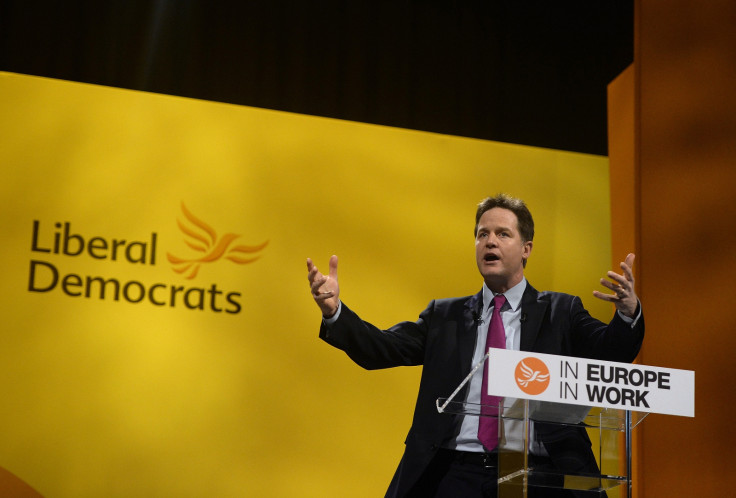Liberal Democrat Conference: Nick Clegg Defeated by Party After it Rejects Airport U-Turn Plans

Nick Clegg has suffered a decisive defeat at the hands of his own party amid claims he was planning a U-turn on airport expansion, which would be as damaging as the tuition fees disaster.
The Liberal Democrat leader was caught in a "lose-lose" situation after he decided the existing party policy of opposing any expansion of capacity at either Heathrow or Gatwick was unrealistic and out of date.
And he wanted the party's policy-making conference to abandon that stance and agree to a new policy backing expansion at Gatwick airport.
But the move sparked an angry backlash with delegates, including MP Julian Huppert, claiming he was abandoning the party's environmental commitments and was planning another U-turn thaT could be just as electorally lethal as the tuition fees about-face after the last election.
So Clegg faced the prospect of either a defeat by his own conference or headlines about Tuition Fees Part II and deep discontent in the rank and file.
"It's not a U-turn on environmental criteria. What we're saying is the environmental criteria we've always had may well be able to allow expansion elsewhere, given technological change.
He had clearly decided another U-turn was the lesser of the two evils. And he lost.
In the end, after a heated debate, the delegates flatly rejected the proposed change and landed the leadership with a major headache.
It means, should Clegg seek to form another coalition after the next election, his negotiating hands will be tied. That raises the distinct possibility he will ignore this decision if it becomes a sticking point in the future.
He will also have nothing to say when the Airports Commission investigating airport expansion reports back after the election with specific recommendations, all of which the Liberal Democrats now oppose.
Earlier, Energy Secretary Ed Davey had defended the proposed change, telling the BBC: "It's not a U-turn on environmental criteria. What we're saying is the environmental criteria we've always had may well be able to allow expansion elsewhere, given technological change."
The leadership also argued there was a threat to jobs and local economies if the Gatwick option was not proceeded with.
But the conference was far more worried about its green credentials and the appearance of a U-turn.
The leadership greeted the defeat with a shrug and the predictable reminder that it remains the only one of the big parties that has policy set by members in a democratic conference.
But the defeat is the clearest example of why the other parties abandoned any pretence that their members made policy this way.
It is also the case that the experience of coalition government over the past four years has shown there is no such thing as a non-negotiable policy.
© Copyright IBTimes 2025. All rights reserved.






















